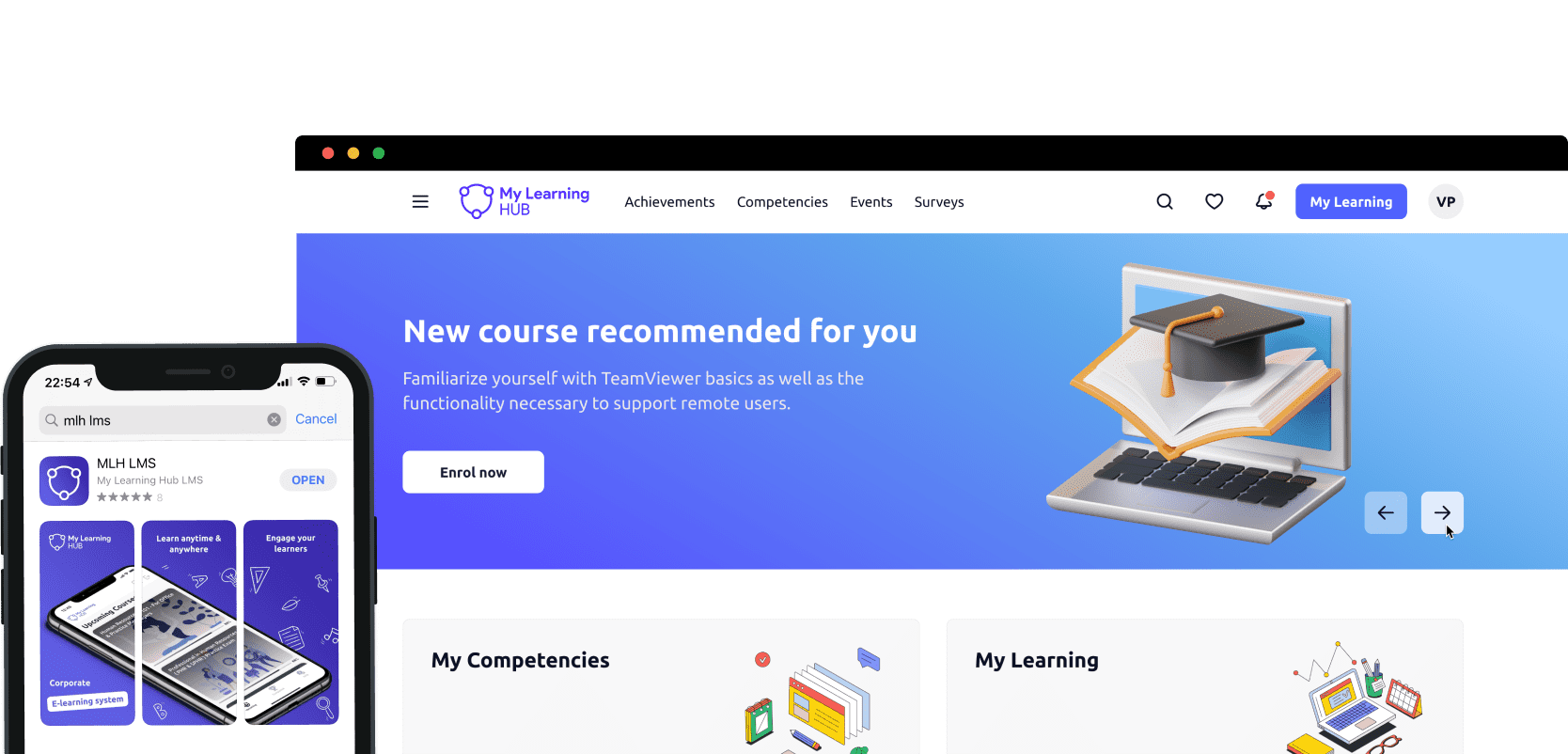
The main attraction of developing your own corporate learning management system in-house is that you can build it exactly as you want it instead of having to compromise. This would give you the ideal LMS, but how practical is it to build your own system and what are the business consequences?
Pros of building your own LMS
Matches your specification – Your own LMS can include all the features you want and none of those you don’t want.
Cost – The initial cost of building your LMS can be much lower than purchasing one if you have skilled IT people and you use your own code or free open-source software.
Integration – If you already operate legacy systems built with the same software, e.g. WordPress, you can bolt your LMS on to your existing systems and integrate it with them.
Cons of building your own LMS
Speed – Developing your own LMS is likely to take a lot more time than if you purchase it.
Cost – Even if you have IT and learning and development staff with the relevant skills, the cost of their time needed to develop the LMS will be considerable. Also, while your own code or open source software is free, extra modules, plug-ins, add-ons or customisations could create significant additional expense. If the system you specify does not work, you could have the additional cost of unplanned customisation to make it work. You also have no idea what additional modifications will be required to keep your LMS working in the future when new releases of the open source software are released or when operating systems, such as Windows, are upgraded.
IT capability – Operating your own LMS will require you to employ staff with the skills and knowledge to maintain it. You need to ensure that all development work is fully documented, especially where you have only one staff member with the required expertise, so that you could still maintain your system if key IT staff leave your organisation.
Complexity and future development – Is your organisation an IT company that works with complex systems? If not, does it have the depth and breadth of IT expertise necessary to develop, modify, integrate and manage all the technologies used by an LMS? Is it capable of working with developing technologies such as artificial intelligence (AI) and virtual reality? If not, your LMS could cease to deliver the results you need when these technologies become widely adopted, making it obsolete.
Conclusion
Building an in-house LMS requires a massive commitment of resources, not just now but in the future, and the business implications of this need to be considered just as much as technical requirements.










